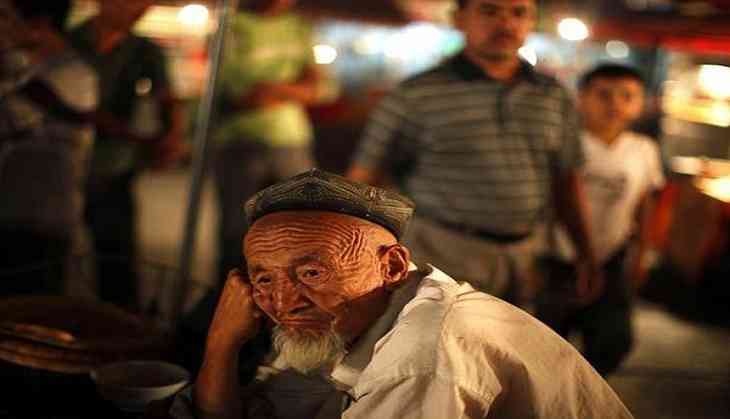Grappling systematic communal assault, Muslims try to find a way out

Grappling with continuing attacks on minorities and their institutions, various Muslim organisations in Gujarat are trying to find a way out. Around 400 representatives of various social organisations gathered in Ahmedabad Sunday to take stock of the situation, its graveness and to discuss the road ahead.
The gathering discussed how the Gujarat model of communal violence has spread to other states like Jharkhand and Rajasthan, said Mujahid Nafees, one of the organisers. Also, the cauldron of hate was being kept alive in Gujarat's remote parts from where objective reportage is difficult to emerge, he added.
“Four dargahs in Kutch district have been desecrated in the last two months. We took it up with the Director General of Police (DGP) and cases were registered against unknown persons. But nobody has been arrested,” Nafees said.
“Also, the the roof of a temple was demolished. We have called for prompt investigations into the incident. These can lead to full-blown communal violence across the state,” he added.
Kutch has otherwise been known as one of the most peaceful districts but efforts to disturb that has been seen at regular intervals. The fact that the district borders Pakistan can help the agenda of perpetrators of communal violence.
Meanwhile, hate messages continued unabated on social media across the state, activists said.
Sustained communal campaign against Muslims in Gandhinagar district's Chhatral area left one youth dead while his mother three of her digits.
Shamshad Pathan of Alpsankhyak Adhikar Manch points out that in Mehsana district's Kadi region vitriolic social media posts have been doing the rounds that some Muslim boys from a local school has been harassing Hindu girls.
He said Hindutva organisations were trying to break the Dalit-Muslim cohesion that has emerged in these parts. Hindu fringe groups want to ensure a 'Gharwapsi' of Dalits, he added.
Hindutva organisations are widely believed to have used Dalits to target Muslims during the 2002 violence. But their social and economic conditions have led to Dalits and Muslims co-existing in poorer parts of Gujarati cities and towns. True, many Dalit and Muslim ghettoes came up in big cities after 2002, but there still remain slums, mainly in small towns and villages, where they continue to live side by side.
“Things need to be looked from a larger perspective. They are now targeting small towns and villages,” Pathan said. “Bharatiya Janata Party (BJP) leader Vinay Katiyar's recent call for sacrifice for Ram temple in Uttar Pradesh can't be looked in isolation. The BJP came to power on the development plank in 2014 but has failed miserably. So it now wants to return to the temple issue that fueled its growth in Gujarat in the 1990s,” he added.
In fact, many Muslims have expressed fears of a communal flare up in the run-up to the 2019 Lok Sabha elections. Sunday's convention passed a resolutions apprehending such fears and seeking early redressal.
They expressed particular concern over the continuing 'deeksha' programmes by Hindutva organisations where tridents are being distributed. The first resolution passed seeks an immediate end to such events and arms training.
The second resolution was regarding the government adhering to the recommendations of the Sachar Committee so that the Muslims are able to get rid of their various fears and apprehensions.
The participants demanded a Minorities Commission be set up in the state, with powers of a civil court. They also demanded that a Minorities (Prevention of Atrocities) Act be enacted for ensuring their safety and security.
Alleging that there was a deliberate attempt across the country to destroy the livelihood and businesses of Muslims, the participants said Muslim organisations need to come together to send a strong message.
“Next week we will hand a memorandum of demands to the governor. We will also demonstrate during the next Assembly session. We want want to make this a national issue,” Nafees said.


